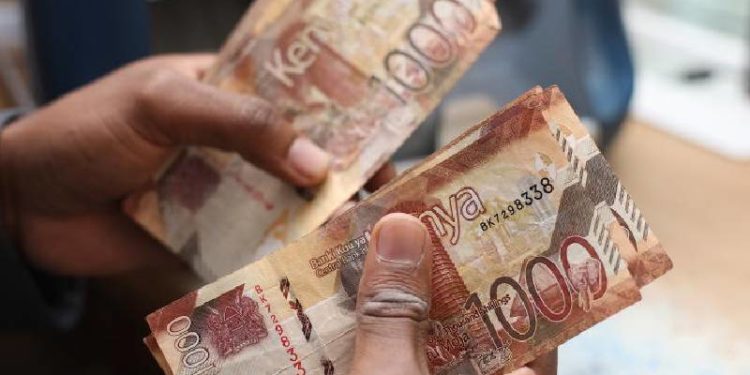For an increasingly pessimistic Kenyan public, the country’s sustained and record-setting exchange rate is one of the most stinging daily reminders of the dreary economic conditions they feel they live in.
The Kenyan shilling, which dropped 21% in value to the dollar over 2023, is only one of a constellation of economic indicators placing pressure on household spending including the cost of petrol, essential services like water and power, and increased school fees.
Historically, the Central Bank of Kenya (CBK) would burn its foreign exchange reserves to stabilize both the shilling and public sentiment but, given that the majority of its external debt obligations are dollar-denominated, this is no longer a practical near-term option.
Forecasted global economic conditions in 2024 will offer Kenya little direct relief. Leading political and financial analysts forecast significant global uncertainty in 2024 thus increasing trade, credit, governance, and volatility risks. In particular, if Chinese growth slows, as many predict it may, then it will likely impact trade with Kenya further exacerbating economic pressure.
However, geopolitics and international trade are not zero-sum games. Amid the ambiguity and global uncertainty are also incredible opportunities. And Kenya is the best and most strategically positioned country in Africa to identify and leverage opportunities from this uncertainty in 2024.
If the CBK’s 2024 exchange rate forecast is correct, and if there is very little that can be done now to improve its current trade position, then leveraging it to potentially open other economic opportunities will offer the country the greatest amount of available financial relief.
One of the clearest opportunities is for Kenya to package its exchange rate together with other policies and trade incentives to ease doing business and attract sustained Foreign Direct Investment (FDI).
Trust
For foreign investors, administrative difficulty and regulatory ambiguity erode the most important element in doing business: trust. Trust that the economic, monetary, and regulatory policies in a destination will remain predictable is far more important for investors than almost any other risk.
Kenya’s long-term economic development gains must be premised on creating trust with foreign investors. Practically, this means creating policies that offer financial incentives, transparent regulations, predictable tax regimes, digital services, and fair dispute resolution to entice investment. These policies must apply to all businesses, not just foreign ones, otherwise the investment climate will remain contaminated by ambiguity.
Now is the time for Kenya to streamline and promote turnkey solutions to attract FDI and induce investor confidence and trust. The components and institutions Kenya needs to establish this already exist. For eligible industries, the Special Economic Zone Authority and Two Rivers International Finance and Innovation Centre offer potentially game changing incentives and support to foreign investors to establish major operations in Kenya.
Other investors can still benefit from KenInvest, Grade A commercial office space, mostly dependable ICT infrastructure, a highly capable and innovative workforce, and extensive social amenities. This infrastructure, especially if it is maintained, will also retain the capital and investment in Kenya leading to long-term growth.
Packaging all of Kenya’s many strengths—including a competitive foreign exchange rate—together with a simplified means to maintain compliance, regulatory transparency, predictability in tax laws, and fair dispute resolution is necessary to unlock its next stage of economic growth.
There is still an enormous amount that Kenya can do to improve its macroeconomic conditions and leveraging its exchange rate to attract investment is one avenue to achieve this. Moreover, the geopolitical risks and opportunities are too great for Kenya to ignore when it possesses all the necessary endowments and creativity to set the standard for attracting FDI in Africa.
Declan Galvin is a geopolitical risk analyst based in Nairobi, Kenya. He writes on corporate governance, business ethics, consumer advocacy issues, and geopolitical risk. He can be followed on LinkedIn.




